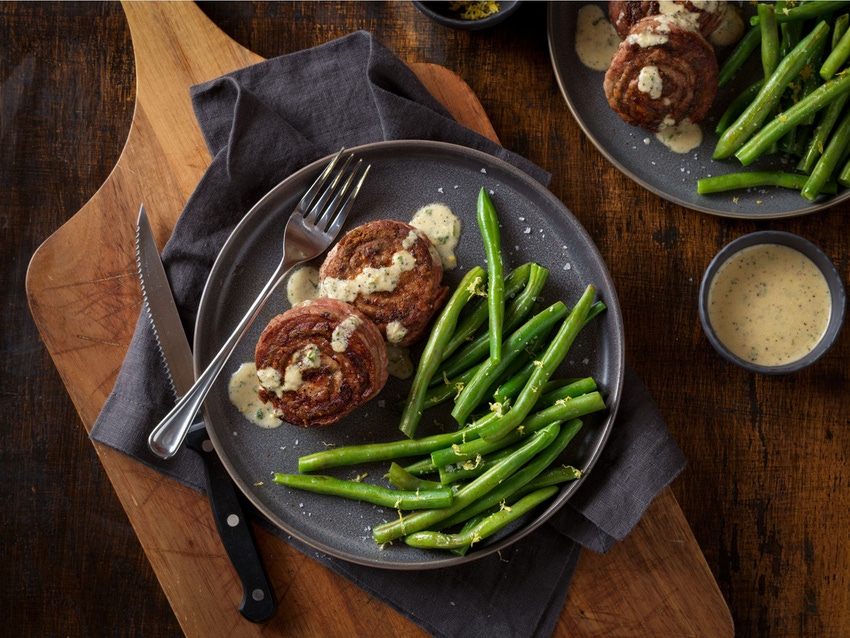Meat & your mood: Why beef makes you happy!
Evidence supports animal fats and proteins for brain function, mental clarity and overall wellness.
December 26, 2018

Mental health is an increasing problem in America today that is devastating families and destroying communities in rural towns and urban cities alike.
There are many contributing factors to why a person may be feeling depressed, anxious, stressed, fatigued, run down or melancholy. However, the medical community may be overlooking one critical component that affects our mental stability — diet.
There is an overwhelming amount of evidence that supports animal fats and proteins in the diet to fuel the brain, promote muscle health, boost immunity and provide the building blocks for healthy, well-functioning bodies and minds.
Three recent headlines highlight this research. I’m glad that consumers will have this information to reference if they are considering a plant-based diet. Here are a few great articles on this topic that are worth sharing on social media today.
1. “The scary mental health risks of going meatless” by Jill Waldbieser for Women’s Health
Waldbieser writes, “More and more women are vegging out...of their minds. New research suggests that along with shedding pounds, slashing cancer risk, and boosting life expectancy, vegetarianism could come with lesser-known side effects: Panic attacks. OCD. Depression.
“‘I hear from vegetarians every day; they have this terrible depression and anxiety, and they don't understand why,’ says Lierre Keith, author of The Vegetarian Myth. ‘People think they're eating a beautiful, righteous diet, but they don't realize there's a potential dark side.’
“It's true that many of America's estimated 8 million vegetarians are drawn to the diet's promise of a healthier weight, heart, and planet. They pass on beef, poultry, and pork, unaware that a growing body of research suggests a link between going meatless and an elevated risk for serious mental disorders.”
2. “The vegan brain” by Georgia Ede for Psychology Today
Ede writes, “The brain-healthy nutrients that plant-eaters in developed countries need to be the most concerned about are: DHA, vitamin B12, vitamin K2 (MK-4), zinc, iron, riboflavin, and vitamin D3. It is common knowledge that vegan diets need to be supplemented with B12, but many people are under the impression that colorful fruits and vegetables are excellent sources of most other vital nutrients.
“I practice at Smith College, where 4% of my students eat a vegan diet—that is twice the national average compared to other college campuses; the great majority of them cite compassion for animals or environmental concerns—not health—as their primary motivation. Many of the students I treat who choose a vegan diet only supplement B12, and some don’t take any supplements at all. The science is clear on this point: unsupplemented vegan diets pose great danger to brain health.”
3. “Children on meat-free diets suffer impaired growth” by John von Radowitz for the Independent
Radowitz writes, “Strict vegetarians who insist their children live by the same principles were criticized today by a leading nutrition expert. Denying growing children animal products in their diet during the critical first few years of life was unethical and could do permanent damage, said Professor Lindsay Allen, from the University of California at Davis.
“She conducted a study which showed that adding just two spoonfuls of meat to the diet of poverty-stricken children in Africa transformed them both physically and mentally.”
Yesterday, I blogged about how consumers love meat today more than ever before. However, plant-based diets and the abundance of meat-free options available at the grocery store seem to be growing in popularity.
The connection between animal fats and proteins and brain function is becoming increasingly clear. Now it’s our job to communicate that message with our consumers. Please consider sharing this blog post on social media to help start this important conversation.
The opinions of Amanda Radke are not necessarily those of beefmagazine.com or Farm Progress.
About the Author(s)
You May Also Like




.png?width=300&auto=webp&quality=80&disable=upscale)
